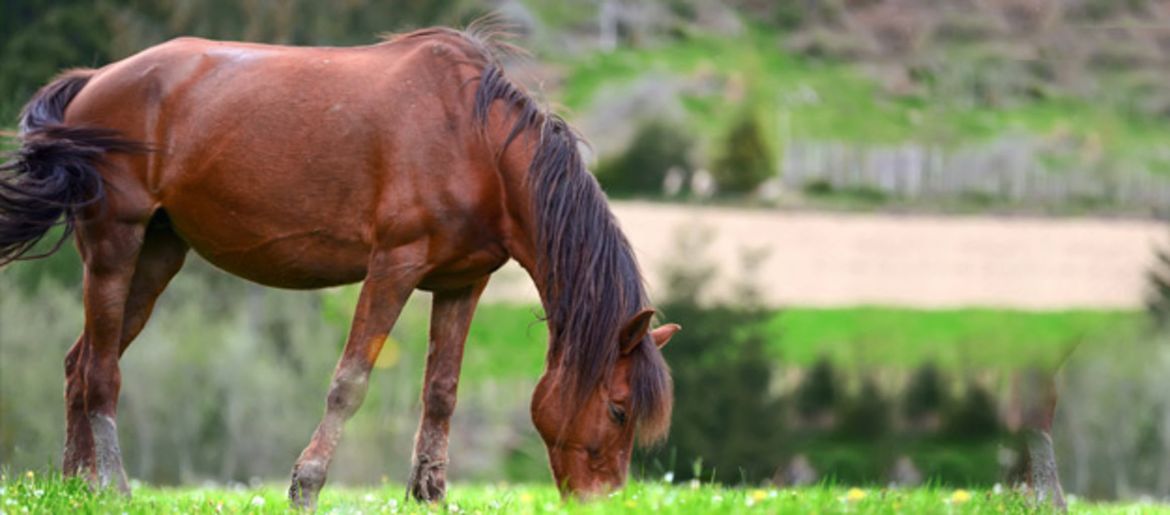"Fit for Spring" - Support your Horse's Metabolism Now
A good metabolism is the basis for an efficient, healthy horse. It is therefore extremely important to create conditions that support the metabolism.
The often cryptic term metabolism covers all chemical reactions that take place in the body. In the process, substances are absorbed, broken down, converted and excreted by the body.
In the body of our horses 50 trillion cells are involved in the metabolism. An unimaginably large number, but it also makes one thing clear: Humans will not fully understand the metabolism of horses, because it is impossible to predict how the body regulates its biochemistry every second through the metabolism. If this complex system is disturbed, health problems arise. Possible consequences are:
- Decreased performance
- Skin problems
- Respiratory problems
- Tarnished legs
Disturbances are often triggered by incorrect feeding, but also by longer periods of rest due to illness, which lead to strong muscle breakdown.
The complexity of the horse's metabolic system now suggests that there are no simple solutions when the metabolism is disturbed or not working properly. "With this herb you strengthen the metabolism of your horse and it is fit again in no time." Such advertising promises cannot be true, because a product cannot simultaneously influence the breakdown of sugar in the intestine and the cycle of messenger substances in the brain. So there is no magic bullet if we want to stimulate the metabolism of our horses. But that doesn't mean it's impossible or that it requires extremely complicated solutions.
Get the intestinal metabolism going
Lining
The intestinal metabolism is even relatively easy to get going by feeding it with carbohydrates, protein, fat and the right minerals and vitamins. This should sound familiar to many by now, because the things just mentioned represent the nutrients that our horses take in with a balanced diet. So if we feed our horses with good hay and a high-quality concentrated feed that contains minerals and vitamins, or a feed additive, the metabolism should actually be going well. (Incidentally, only feeding hay is not optimal, because the soil on which the grass grows is often lacking in minerals.)
So it is important to think. You have to think carefully about what the horses are missing and supplement that instead of just feeding something. The latter can lead to oversupply and major problems such as poisoning. The feed must always be tailored to the specific needs of the horse. After all, an older horse has different needs than a young one, a workhorse different from a leisure horse.
Move
Exercise is almost more important than good, balanced food. Horses are born to move, and physical activity increases the metabolism rate. Just as one should train strength and stamina in the horse, one should also train the metabolism. Fortunately, you don't have to do any special activities to do this. Physical exertion pumps more blood into the musculoskeletal system. The result, of course, is a more active metabolism, with which nutrients and waste materials are transported away to the muscles.
Sensible and sufficient exercise has a very positive influence on the metabolism. Even half an hour of trot a day can have a positive effect on a significant metabolic problem such as insulin resistance.
Last but not least, a specific tip, an old home remedy, so to speak: Fruit vinegars, such as apple cider vinegar, not only have a stimulating effect on the metabolism in humans, but also in horses. You just give it a shot over the food (preferably at the time of the coat change and then regularly).
Latest reviews
-
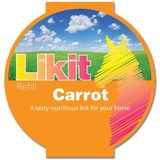 3.4 (5)
3.4 (5)Likit Small Likit, Carrot (250 g)
- Carrot
- Apple
- Banana
- Cherry
- Refills for the Likit toys
- Perfect for bored horses
€ 4,99 (€ 19,96 / kg)Delivery by March 10
-
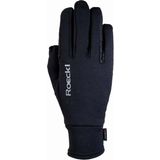 4.5 (4)
4.5 (4)Roeckl Weldon Winter Riding Gloves - Black, 8.5 (1 Pair)
- Universally applicable
- Optimal comfort
- Elaborately siliconised palm
€ 34,99Delivery by March 10
-
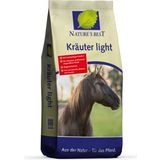 4.9 (9)
4.9 (9)Nature's Best Herbal Light Muesli, 20 kg
- High content of trace elements
- Reduced starch & sugar
- Ideal for allergy sufferers
€ 33,99 (€ 1,70 / kg)Delivery by March 10
-
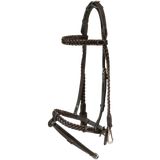 5.0 (1)
5.0 (1)Dy'on Working by Dyon - Braided Training Bridle, Full , Brown
- Cheek pieces with snap hooks
- Made with soft buffalo leather
- With removable flash strap
€ 155,99Delivery by March 19
